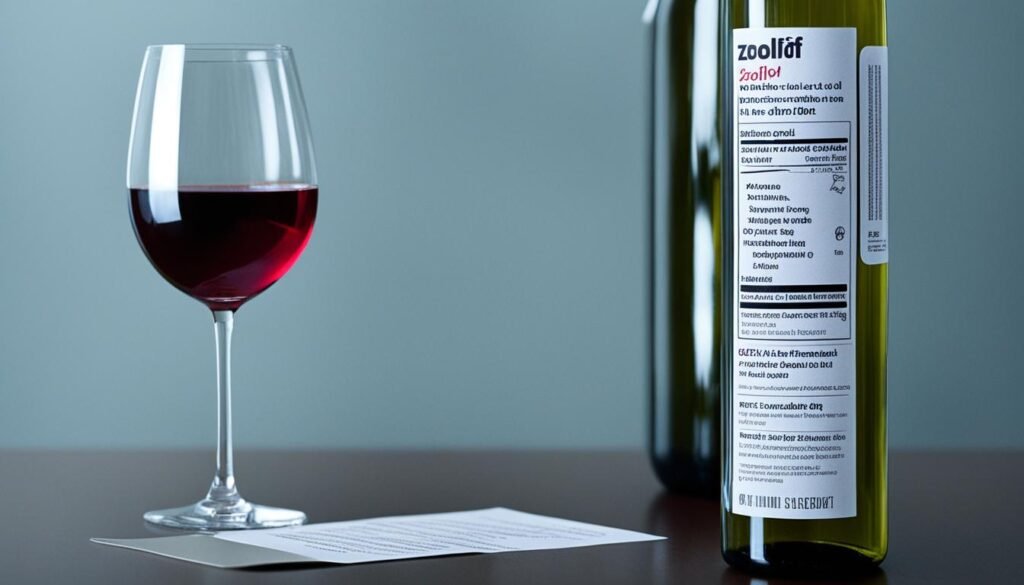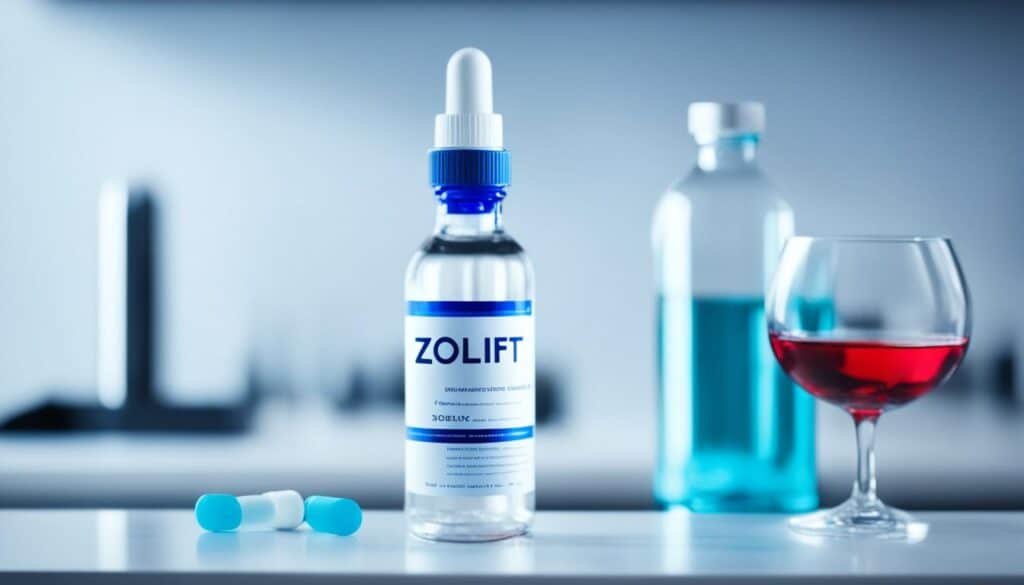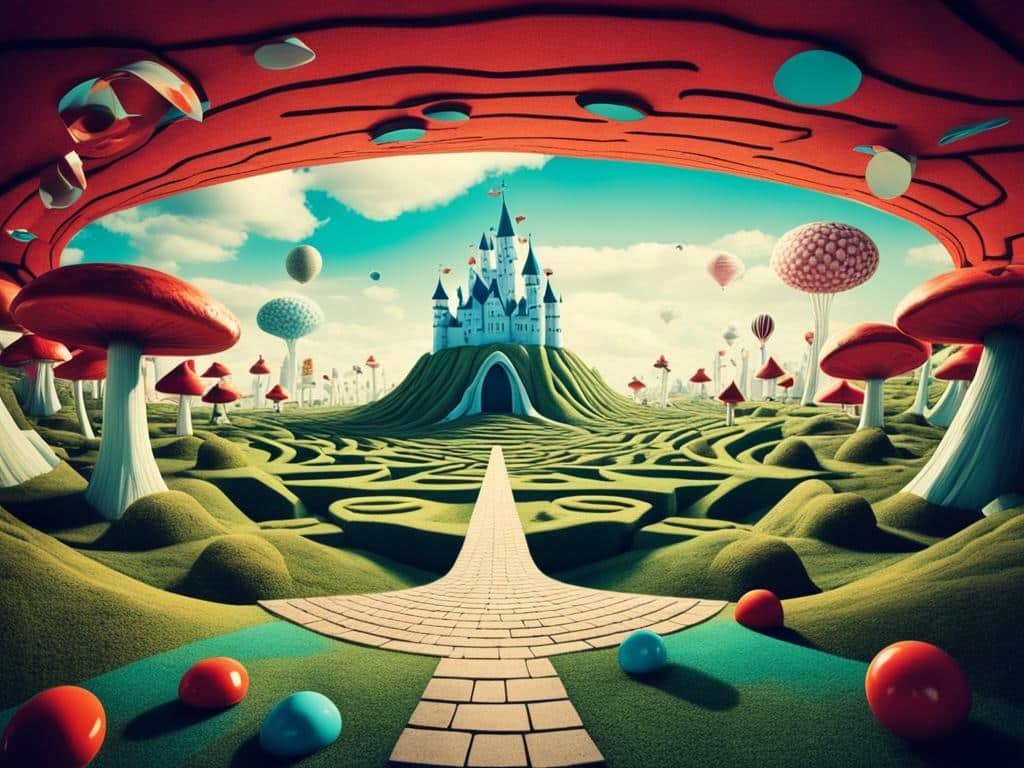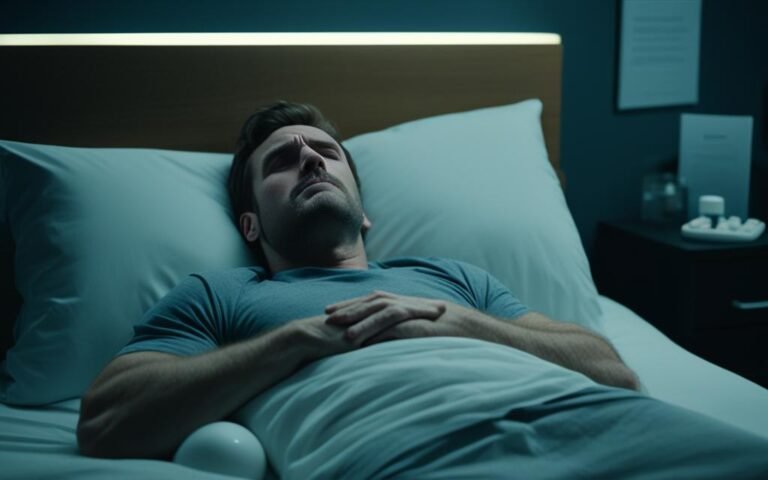Have you ever found yourself at a crossroads, torn between the desire to unwind with a drink and the need to take care of your mental health? It’s a tough spot to be in, and one that many people who take Zoloft can relate to. As someone who has walked that path, I understand the conflicting emotions and questions that arise when faced with the decision to mix Zoloft and alcohol.
Zoloft, also known as sertraline, is a commonly prescribed medication for depression, anxiety disorders, and other mental health conditions. Its role in bringing balance and stability to our lives is crucial, and so is our desire for a moment of relaxation or socializing with a drink in hand. But what happens when these two worlds collide?
Over the course of this article, we will explore the Zoloft alcohol interaction, shedding light on the potential risks and effects of mixing these substances. I want to provide you with the guidance and knowledge you need to make informed decisions about your well-being, so that you can navigate the pathway to mental wellness with confidence and clarity.
Together, let’s uncover the truths and debunk the myths surrounding Zoloft and alcohol, so that you can find the balance that works for you and your mental health journey.
Key Takeaways:
- Mixing Zoloft and alcohol can have potential risks and consequences.
- Understanding the impact of Zoloft and alcohol on serotonin levels is crucial.
- The combination can intensify side effects and impair coordination.
- It is important to recognize the signs of serotonin syndrome.
- Consulting healthcare providers and implementing alternative coping strategies are key.
Understanding Zoloft and Its Effects on the Brain
Zoloft, also known by its generic name sertraline, works by inhibiting the reuptake of serotonin in the brain. Serotonin is a neurotransmitter that helps regulate mood, sleep, and other important functions. By increasing the availability of serotonin in the brain, Zoloft helps to improve symptoms of depression and anxiety. Understanding how Zoloft affects the brain is crucial for comprehending its potential interactions with alcohol.
Zoloft and Alcohol: An Overview of the Interaction
Can you drink alcohol while taking Zoloft? Zoloft and alcohol consumption can have various effects on the body and brain. It is important to understand the potential risks and consequences of combining these substances. This section will delve into why mixing Zoloft and alcohol is considered risky, how the combination affects serotonin levels in the brain, and the potential for intensified side effects when drinking alcohol while on Zoloft.
Why Mixing Zoloft and Alcohol is Risky
Combining Zoloft and alcohol is considered risky due to several factors. Both substances can cause drowsiness, dizziness, and impaired coordination on their own. When taken together, these effects can be intensified, increasing the risk of accidents and falls. Additionally, alcohol can hinder the effectiveness of Zoloft in regulating serotonin levels in the brain, potentially diminishing the therapeutic benefits of the medication. It is crucial to understand the risks involved in mixing Zoloft and alcohol to make informed decisions about alcohol consumption while on this medication.
How the Combination Affects Serotonin Levels
Both Zoloft and alcohol can influence serotonin levels in the brain. Zoloft increases serotonin availability by inhibiting its reuptake, while alcohol temporarily boosts serotonin levels. Taking them together can lead to a rapid increase in serotonin, which can potentially result in serotonin syndrome. Serotonin syndrome is a rare but potentially life-threatening condition characterized by symptoms such as confusion, rapid heart rate, high blood pressure, and fever. Understanding the impact of this combination on serotonin levels is essential for recognizing the potential risks and symptoms of serotonin syndrome.
Potential for Intensified Side Effects
The combination of Zoloft and alcohol can lead to intensified side effects. Both substances can cause drowsiness, reduced alertness, and uncoordinated movements. When consumed together, these effects can be heightened, increasing the risk of accidents and injuries. It is crucial to recognize the potential for intensified side effects when mixing Zoloft and alcohol to prioritize safety and make informed decisions.

The Side Effects of Zoloft and Alcohol Consumption
Both Zoloft and alcohol can cause various side effects when consumed individually. When combined, these side effects can be exacerbated and potentially lead to adverse outcomes. It is important to understand the potential risks and implications of mixing Zoloft and alcohol.
From Drowsiness to Increased Depression Symptoms
Both Zoloft and alcohol can cause drowsiness and impair cognitive functioning. When consumed together, these effects can be intensified, leading to excessive sedation and difficulty staying awake. Furthermore, alcohol is a central nervous system depressant that can worsen depressive symptoms, counteracting the positive effects of Zoloft and potentially worsening the individual’s mental health condition. It is important to be aware of the potential for increased depression symptoms when mixing Zoloft and alcohol to seek appropriate medical guidance and support.
Recognizing the Signs of Serotonin Syndrome
Serotonin syndrome is a rare but serious condition that can occur when there is an excess of serotonin in the brain. Mixing Zoloft and alcohol can increase the risk of developing serotonin syndrome. It is crucial to recognize the signs and symptoms of serotonin syndrome, which include confusion, rapid heart rate, high blood pressure, fever, and even seizures. Prompt identification and medical attention are essential to avoid complications associated with serotonin syndrome.
The Long-Term Risks of Concurrent Use
Using Zoloft and alcohol concurrently can have long-term risks and complications. Alcohol misuse can lead to alcohol dependency, which can further exacerbate mental health conditions and complicate the treatment process. Additionally, the combination of Zoloft and alcohol can lead to impaired judgment, increasing the risk of accidents and dangerous behaviors. Understanding the long-term risks of concurrent use is crucial for making informed decisions and seeking appropriate support and treatment options.
Can You Drink Alcohol While Taking Zoloft?
One of the common questions is whether it is safe to drink alcohol while taking Zoloft. It is important to understand the impact of alcohol on Zoloft’s effectiveness and the potential for intensified side effects before making decisions about alcohol consumption.

Personalized Guidance on Zoloft and Alcohol Use
When it comes to the use of Zoloft and alcohol, personalized guidance is crucial. Consulting healthcare providers for safe practices is essential to ensure optimal treatment outcomes and minimize potential risks. This section will delve into the importance of open communication with healthcare providers, the implementation of alternative coping strategies, and navigating mental health treatment while dealing with alcohol usage. It aims to provide practical guidance for individuals who may be struggling with these complex considerations.
Consulting Healthcare Providers for Safe Practices
Consulting healthcare providers is crucial for obtaining personalized guidance on Zoloft and alcohol use. It is important to have open discussions about alcohol consumption, mental health symptoms, and potential interactions with medications. Healthcare providers can offer advice tailored to individual needs and circumstances, helping individuals make informed decisions about alcohol use while on Zoloft.
Implementing Alternative Coping Strategies
Finding alternative coping strategies to alcohol is essential for individuals on Zoloft. Engaging in healthy habits and seeking alternative methods of stress reduction can contribute to overall well-being and mental health. This section will explore various coping strategies that individuals can implement, such as exercise, therapy, mindfulness practices, and supportive social networks.
Navigating Mental Health Treatment with Alcohol Usage
Navigating mental health treatment while dealing with alcohol usage can be challenging, but it is crucial for individuals seeking comprehensive care. This section will discuss the importance of honest and open communication with mental health professionals, exploring treatment options that do not involve alcohol, and addressing any underlying issues related to alcohol addiction. It aims to provide practical guidance for individuals who may be struggling with dual diagnosis of alcohol addiction and depression.
| Consulting Healthcare Providers | Implementing Alternative Coping Strategies | Navigating Mental Health Treatment with Alcohol Usage |
|---|---|---|
| Open communication with healthcare providers | Engaging in healthy habits | Honest and open communication with mental health professionals |
| Discussion about alcohol consumption | Seeking alternative methods of stress reduction | Exploring treatment options without alcohol |
| Understanding potential medication interactions | Exercise, therapy, mindfulness practices | Addressing underlying issues related to alcohol addiction |
Alcohol Addiction and Depression: Dual Diagnosis Considerations
Alcohol addiction and depression often co-occur, creating a complex and challenging situation for individuals facing both conditions. The relationship between alcohol addiction and depression is intertwined, with each influencing and exacerbating the other. This section explores the considerations and treatment options for individuals dealing with the dual diagnosis of alcohol addiction and depression, emphasizing the importance of comprehensive and integrated care.
When someone is diagnosed with both alcohol addiction and depression, it is essential to understand the unique challenges and complexities they face. These individuals may struggle with overlapping symptoms, such as low mood, feelings of hopelessness, and social isolation. Treating both conditions simultaneously is crucial for achieving optimal outcomes and improving overall well-being.
Integrated care that addresses both alcohol addiction and depression is key to successful treatment. This approach involves a combination of therapies, including medication, counseling, support groups, and lifestyle changes. By addressing both the underlying causes and symptoms of alcohol addiction and depression, individuals can work towards sustained recovery and improved mental health.

Dual diagnosis treatment programs provide specialized care tailored to the unique needs of individuals dealing with alcohol addiction and depression simultaneously. These programs often involve a multidisciplinary team of healthcare professionals who collaborate to develop a personalized treatment plan. By addressing the complex interplay between alcohol addiction and depression, these programs help individuals break the cycle of addiction and improve their mental well-being.
Support from loved ones and a strong social network are crucial for individuals facing dual diagnosis. Friends and family can play a vital role in providing emotional support, encouraging treatment adherence, and participating in therapy sessions. Open and honest communication within the support network fosters understanding, empathy, and a safe space for recovery.
Recovery from alcohol addiction and depression is a journey that requires dedication, patience, and professional guidance. It is essential to seek help from qualified healthcare providers who specialize in dual diagnosis treatment. These professionals can provide the necessary guidance, support, and resources to navigate the complexities of alcohol addiction and depression, ensuring a comprehensive and integrated approach to recovery.
Zoloft Interactions with Other Substances
Zoloft, a commonly prescribed medication for depression and anxiety, can interact with other substances, potentially leading to complications and side effects. It is important to understand these interactions to ensure the safe and effective use of Zoloft. This section will examine the consequences of mixing Zoloft with common drugs, explore the impact of caffeine and over-the-counter supplements, and provide guidance on recognizing toxicity and signs of overdose.
Understanding the Consequences of Mixing with Common Drugs
When Zoloft is combined with certain medications, interactions can occur, affecting its efficacy and increasing the risk of adverse effects. It is essential to be aware of these potential consequences to make informed decisions and seek proper medical guidance.
Some common drugs that may interact with Zoloft include:
- Monoamine oxidase inhibitors (MAOIs)
- Blood thinners
- Antipsychotics
Understanding these interactions can help individuals avoid potential complications and ensure the safe use of Zoloft in conjunction with other medications.
The Impact of Caffeine and Over-the-Counter Supplements
Caffeine and over-the-counter supplements can also have interactions with Zoloft. It is important to be aware of these potential interactions and their impact on the effectiveness of Zoloft.
Caffeine, found in drinks like coffee and energy drinks, can interfere with the absorption and metabolism of Zoloft, potentially reducing its effectiveness. Over-the-counter supplements, including herbal remedies and vitamins, may also interact with Zoloft, leading to unpredictable side effects.
It is crucial to consult with a healthcare provider before combining Zoloft with caffeine or over-the-counter supplements to ensure the safe and optimal use of the medication.
Recognizing Toxicity and Signs of Overdose
Taking excessive amounts of Zoloft or combining it with other substances, including alcohol, can lead to toxicity and potential overdose. It is important to be aware of the signs of Zoloft toxicity and seek immediate medical attention if overdose is suspected.
Signs of Zoloft toxicity may include:
- Nausea and vomiting
- Dizziness and lightheadedness
- Extreme drowsiness
- Irregular heartbeat
- Seizures
If you or someone you know experiences these symptoms after taking Zoloft, seek emergency medical assistance right away.
Conclusion
In summary, mixing Zoloft and alcohol can have significant risks and potential consequences. Combining these substances can intensify side effects, impair coordination and cognitive functioning, and interfere with the therapeutic benefits of Zoloft. It is essential to prioritize your safety and mental well-being by seeking professional guidance and implementing alternative coping strategies.
To ensure safe use of Zoloft and alcohol, it is crucial to consult healthcare providers who can provide personalized guidance based on your individual needs and circumstances. They can address any concerns or questions you may have, helping you make informed decisions about alcohol consumption while on Zoloft.
Implementing alternative coping strategies is another key aspect of managing the potential risks associated with Zoloft and alcohol use. Engaging in healthy habits, such as exercise, therapy, mindfulness practices, and building supportive social networks, can contribute to overall well-being and reduce reliance on alcohol as a coping mechanism.
Lastly, it is important to recognize the long-term risks and complications that can arise from concurrent use of Zoloft and alcohol. Alcohol misuse can worsen mental health conditions, complicate treatment processes, and increase the risk of accidents and dangerous behaviors. By prioritizing your mental health and seeking appropriate support and treatment options, you can navigate the challenges of dual diagnosis and work towards a healthier and more fulfilling life.
FAQ
What is Zoloft and how does it work in the brain?
Zoloft, also known as sertraline, is an antidepressant medication that belongs to a class of drugs called selective serotonin reuptake inhibitors (SSRIs). It works by increasing the availability of serotonin in the brain, which helps regulate mood, sleep, and other important functions.
Why is mixing Zoloft and alcohol considered risky?
Mixing Zoloft and alcohol is considered risky due to several factors – zoloft and alcohol side effects. Both substances can cause drowsiness, dizziness, and impaired coordination on their own. When combined, these effects can be intensified, increasing the risk of accidents and falls. Additionally, alcohol can hinder the effectiveness of Zoloft in regulating serotonin levels in the brain, potentially diminishing the therapeutic benefits of the medication.
How does the combination of Zoloft and alcohol affect serotonin levels in the brain?
Zoloft increases serotonin availability by inhibiting its reuptake in the brain, while alcohol temporarily boosts serotonin levels. When taken together, these substances can lead to a rapid increase in serotonin, potentially resulting in a rare but life-threatening condition called serotonin syndrome. Symptoms of serotonin syndrome include confusion, rapid heart rate, high blood pressure, and fever.
What are the potential intensified side effects of mixing Zoloft and alcohol?
The combination of Zoloft and alcohol can lead to intensified side effects such as drowsiness, reduced alertness, and uncoordinated movements. When consumed together, these effects can increase the risk of accidents and injuries.
What are the risks of concurrent use of Zoloft and alcohol in the long term?
Concurrent use of Zoloft and alcohol can lead to long-term risks and complications. Alcohol misuse can worsen depressive symptoms, counteracting the positive effects of Zoloft and potentially worsening the individual’s mental health condition. Additionally, it can increase the risk of accidents and dangerous behaviors due to impaired judgment.
Is it safe to drink alcohol while taking Zoloft?
It is not recommended to drink alcohol while taking Zoloft due to the potential risks and interactions between the two substances. It is important to consult healthcare providers for personalized guidance on alcohol consumption while on Zoloft.
How can I obtain personalized guidance on Zoloft and alcohol use?
It is crucial to consult healthcare providers for personalized guidance on Zoloft and alcohol use. Open communication with healthcare providers, implementing alternative coping strategies, and seeking appropriate mental health treatment while dealing with alcohol usage are essential.
What should I do if I have dual diagnosis of alcohol addiction and depression?
Dual diagnosis of alcohol addiction and depression requires comprehensive and integrated care. It is important to have honest and open communication with mental health professionals, explore treatment options that do not involve alcohol, and address underlying issues related to alcohol addiction.
How does Zoloft interact with other substances?
Zoloft can interact with other substances, leading to potential complications and side effects. It is important to understand the consequences of mixing Zoloft with common drugs, the impact of caffeine and over-the-counter supplements, and the signs of Zoloft toxicity and overdose.










